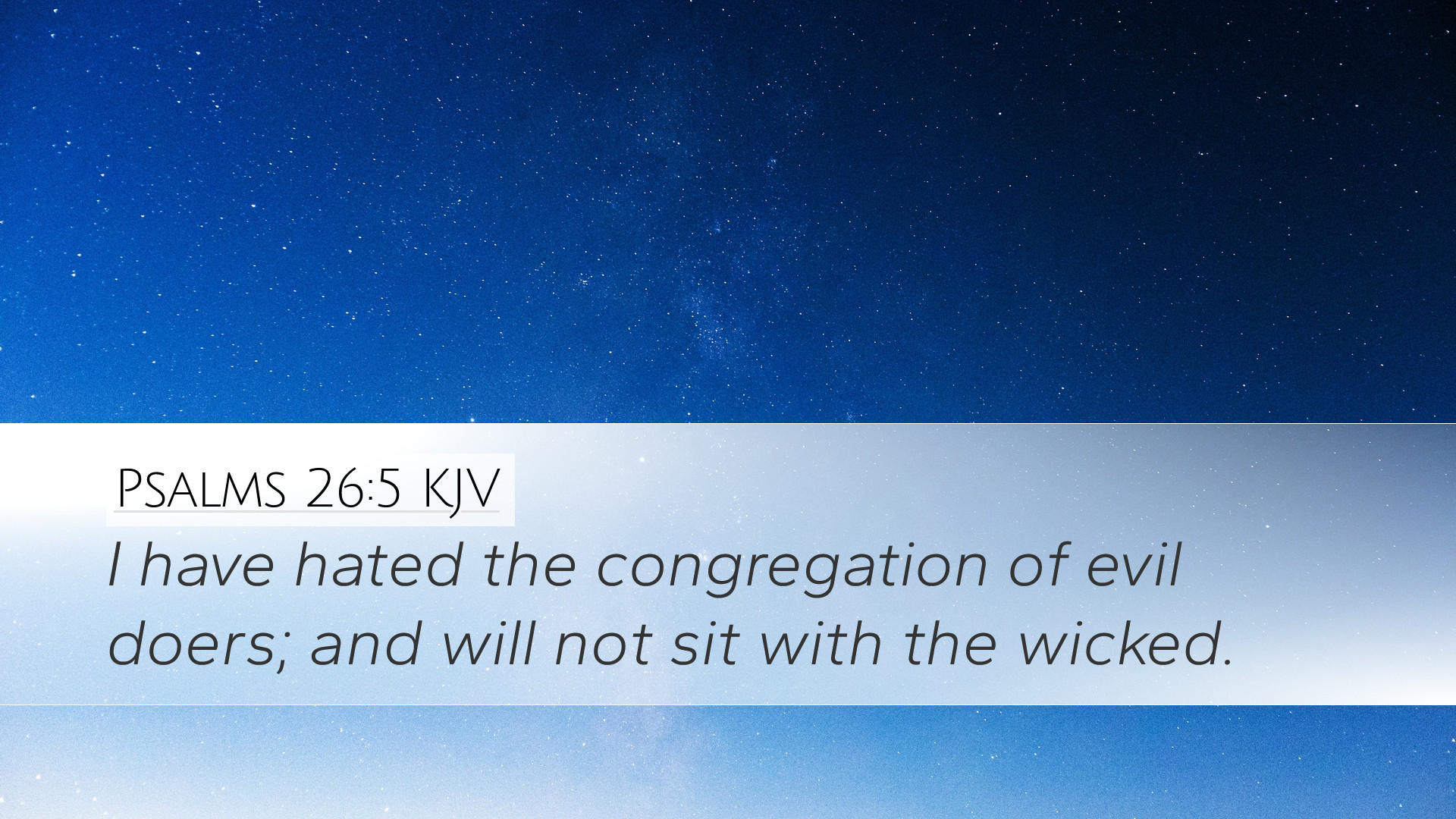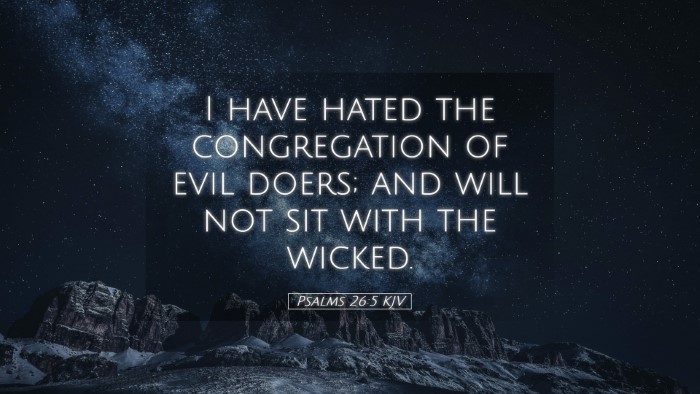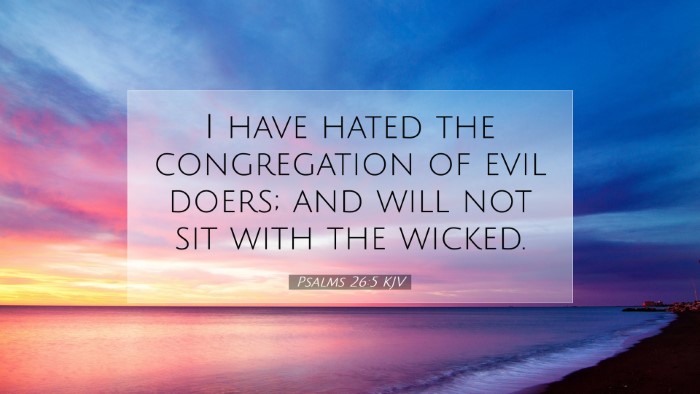Psalms 26:5 Commentary
Verse: "I have hated the congregation of evil doers; and will not sit with the wicked."
Contextual Overview
This verse is a part of a larger psalm attributed to David, expressing a plea for divine judgment and vindication. In this psalm, David contrasts the righteous and the wicked, outlining his position in relation to the two groups. His declaration in verse 5 serves as a critical reflection on moral integrity and the need for a believer to distance themselves from those who engage in evil.
Insights from Matthew Henry
According to Matthew Henry, this verse reflects a necessary aversion to the company of the wicked. Henry emphasizes that David, as a man after God’s own heart, maintained a profound disdain for evil and evil doers. This hatred is not a personal vendetta but a moral conviction. He points out that fellowship in wickedness taints one's innocence and can lead to spiritual decay.
Henry notes that David's firm stance against the congregation of evil doers demonstrates his desire to align himself with God's will. He understands that evil company corrupts good morals (1 Corinthians 15:33) and therefore resolves not to sit in their assembly. This decision underscores the importance of discernment in a believer's life.
Reflection from Albert Barnes
Albert Barnes adds a rich layer to the understanding of Psalms 26:5 by examining the terms used. He interprets "congregation of evil doers" as an assembly committed to moral decay and wickedness. Barnes suggests this phrase reflects a broader societal context where collective evil is present. David's rejection of sitting with the wicked indicates not just physical distancing but an ideological and spiritual separation.
Moreover, Barnes contemplates the consequences of mingling with the wicked. He warns that such associations can lead one into practices contrary to God's law. A true believer, therefore, must have a deep-seated commitment to righteousness, willing to stand alone if necessary, in adherence to God’s principles.
Insights from Adam Clarke
Adam Clarke, providing an exegetical analysis, elaborates on the implications of David's declaration. Clarke suggests that the term "hate" signifies a strong rejection based on knowledge and moral grounds. He elaborates that this is not a spontaneous emotional response but a deliberate choice formed by understanding what righteousness demands.
Clarke goes further to illustrate the term "sit" as symbolic of belonging and comfort within a certain community. To not sit with wicked people implies a refusal to partake in their actions, speech, or values. Clarke's insights highlight the necessity of seeking purity within one’s own life and community to reflect God’s glory.
Theological Implications
Psalms 26:5 serves as a foundational verse concerning the holiness required of God's people. This verse brings forth a theological understanding of sin, separation, and sanctification. The rejection of the wicked is not merely an act of disdain but a command rooted in the pursuit of holiness (1 Peter 1:16), which ultimately aligns with God’s nature and character.
The implications for pastors, theologians, and scholars are significant, establishing the necessity of guiding their congregations toward a deeper understanding of the dangers of association with evil. The passage challenges the contemporary acceptance of morally ambiguous relationships and encourages the faithful to live lives marked by distinct holiness.
Practical Application
- Discernment: Believers are called to exercise discernment regarding whom they associate with, carefully weighing the spiritual ramifications of those relationships.
- Community Choices: Churches should cultivate a community of righteousness, encouraging members to hold each other accountable and creating an environment that supports godliness.
- Engaging with the Culture: While it is crucial to engage the culture with the gospel, this must be done without compromising one's values and the moral standards of Scripture.
Conclusion
The richness of Psalms 26:5 speaks volumes about the essence of holiness and the inherent call for believers to reject evil associations. Through insights gleaned from Matthew Henry, Albert Barnes, and Adam Clarke, we see the multifaceted nature of David's declaration, urging a serious contemplation of the company we keep. As this exploration illustrates, a commitment to righteousness leads the faithful not only to personal holiness but also to being a beacon of light in a world often shrouded in darkness.


